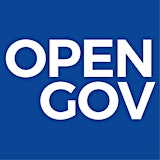Data Governance 2.0: Managing and protecting your data assets in a volatile environment
วันที่ 9 มิถุนายน 2563 (7.45-9.00)
สถานที่ Online

Information can be free, shared and open, owned, closed and expensive; it can be empowering and dangerous. We must determine what we want it to be
Data is often referred to the “new oil”, extracted by companies to produce as much of that data and produce insights to put themselves at the significant advantage of being able to see what others can’t. Having data (or access to it) is not enough; the key to success is making the best possible use of data.
Managing this growing business asset in the right way have become the first priority of almost every organisation. These businesses realise the opportunity presented by data are limitless, transformative, and they must be acted on with urgency.
Yet, the sheer volume and complexity of data that organisation must confront can be paralysing. Worse, if mismanaged, data can present a considerable risk.
Jumping into a digital transformation without first establishing a data governance framework is a recipe for disaster given the scope of the change initiative in the policies, regulations and technologies that it encompasses.
Data governance of tomorrow is not only about maximising the value of data for operational effectiveness, decision making and regulatory requirements, but also about minimising the risks associated with poor data management, especially in the time of global pandemic or disaster where the accessibility, transparency, and sharing and use of data is crucial.
This is why data privacy is so critical. The European Union’s General Data Protection Regulation (GDPR) , Singapore’s Personal Data Protection Act (PDPA) or Thailand’s Personal Data Protection Act protects business data containing personally identifiable information and administer governance and security challenges with regulatory and legal restrictions on a global scale.
Many organisations have failed to realise that they have little control over data that exists within the business, where it sits, and how it is being used across the business units, geographies, or with third parties.
Without a shift in data governance mind-sets, companies will likely find it challenging to leverage all the business benefits of next-generation platforms and successfully manage risks.
An integral part of any data management framework is data security. Stolen, leaded or corrupted data will seriously undermine business processes and trust in the organisation’s capacity to manage private data appropriately.
With that being said, how can we navigate the data maze in the digital age to hit our stride faster, smoother and efficiently?
OpenGov is pleased to invite you to our exclusive OpenGovLive!, our virtual Breakfast Insight session aimed at imparting knowledge on data governance and ensuring compliance to privacy regulations.
This session would serve as a great peer-to-peer learning platform to gain insights and practical solutions to go beyond compliance to manage privacy, risk and data protection effectively.
We will be discussing:
· Key challenges surrounding data and privacy implementation
· Ways to turn automating compliance management into a safe, secure and sustainable option to reduce risks
· Approaches to implement privacy framework
· How legal requirements can meet the technology obligation
· Finding a delecate balance between control and access
· Privacy implementation and its best practices
